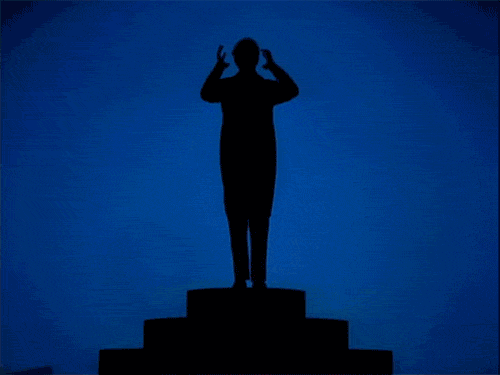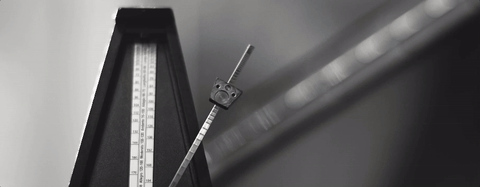I'm sure you might be thinking, why would someone write about something so obvious? To that I say, for most non-band kids, the importance of the conductor is not obvious. The conductor is one of the biggest aspects of an ensemble that most people take for granted. What I have often heard most is the usual saying as follows, "what does the dude at the front of the band even do? He just waves his arms around and holds a stick?" Quite wrong my dear friend, that happens to be a magic stick, and its proper name is a baton. To prove to the world conductors are the ultimate puppet masters, here are five reasons conductors are an important asset to a band.
1. The Conductor controls style, emotion, and dynamics
Believe it or not, the way someone moves their arms around has a effect on the whole ensemble's sound. If the pattern the conductor gives is smooth and welcoming, the players will follow his movement, and react with more sensitivity and warmness to each beat. If the conductor has a very strict and strong sense of urgency while conducting, the ensemble plays boldly, and with more space in between notes.
2. The Conductor Has Power Over Tempo
Even if the tempo is written as 145, the conductor will control how fast or how slow he or she wants a song to be played. Any sort of tempo change or ritardando is completely in the capable hands of the conductor and how he or she wants the tempo transition to go. So therefore, all players must always watch!
3. Entrances Are More Confident With A Director At Hand
Try playing a piece of music with entrances on funky off-beats or different parts playing the same thing but all entering at a different time without a conductor. Some experienced ensembles might not have too much trouble with it, but other bands would. Sometimes without having a conductor cue someone in, the entrance is not as strong because players are used to getting cues from the director.
4. He Or She Is The Only Person Who Can Really Hear The Ensemble As A Whole
All players in the band should have a fairly good idea of whether they are overpowering the melody or playing out of tune, but the conductor is really the only individual who has both ears open to each part in the score in front of him. He or she can hear the percussion texture to the ensemble, and the low brass balance to the higher woodwind parts.
5. The Conductor Knows How Everything Should Be
If something is not right, the conductor has an amazing ear for what went wrong and how to fix it. Thanks to their years of experience, they know how certain works should sound when they are played. (Even if they are pieces from the 18th century). This way, they can adjust the ensemble as needed, and a famous Bach piece will sound just as it was intended to sound back when it was first composed.
If you did not know much about a conductor, I hope you do now. For all my fellow band members out there, don't ever take your conductor for granted. They have a lot of say in how the music you perform should sound, and it's your job to do what he or she encourages you to do.




















